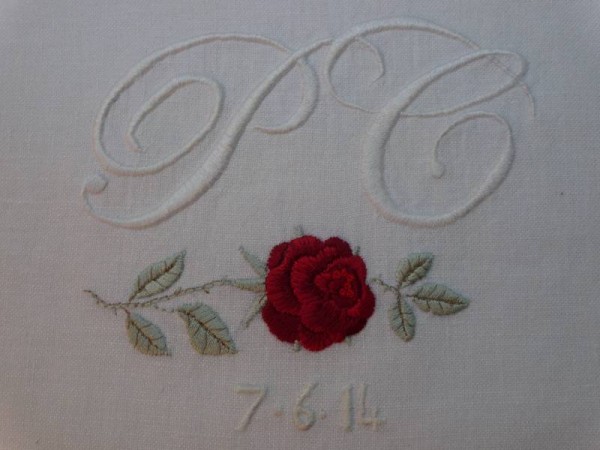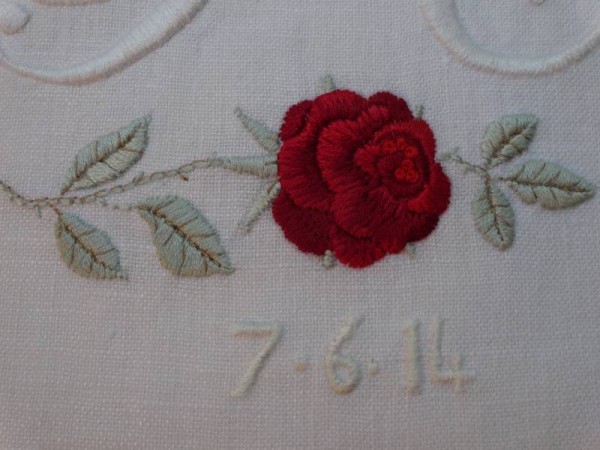This invitation for this June wedding came headed by the couple’s initials below which there was a red rose. As they obviously liked the font – or why would they have chosen it ?- I looked no further for inspiration. The vicar kindly got to work with his photocopier and produced a range of enlarged images until we found one that satisfied me as a nice size to embroider. I then embroidered a rose similar to the one on the invitation.
Deep red always seems to be difficult to photograph and this is my best attempt after much faffing about on ironing boards with artificial light, on the garden table in dappled sunlight and on windowsills both with and without artificial light – I think this is window sill without artificial light. If I can produce a better image over the next few days until I’ve given it to the couple, I will add it.
The linen is light to medium weight with a bit more slub than I would like (as it sometimes plays havoc with the even outlining of the initials) but I’ve used it often so it’s not really a problem. The white thread was DMC Anchor No 1 (Sorry, my mistake) and the reds and greens were ends of skeins waiting to be used.
Now the baby caravan has moved on to other relatives, general household tasks and backlog embroidery can be resumed. Hilary Clinton got into trouble in 1996 for writing a book whose title was paraphrased as ‘It takes a village to raise a child’ – well we in our own little extended family are certainly finding that it takes a small hamlet’s worth. To be fair to Hilary her book’s actual title was ‘It Takes a Village: and Other Lessons Children Teach us’ and her idea was to consider how children’s formative influences often came from one or two individuals or groups who by chance, character or serendipity pressed the right or wrong buttons leading to an individual’s blossoming or withering. She wanted to discuss how society could put as much good influence a child’s way as possible but controversies as to what the original Aftrican proverb meant and how much the book was ghosted meant the book as a discussion point did not receive sufficient serious attention and that can only be a shame.




